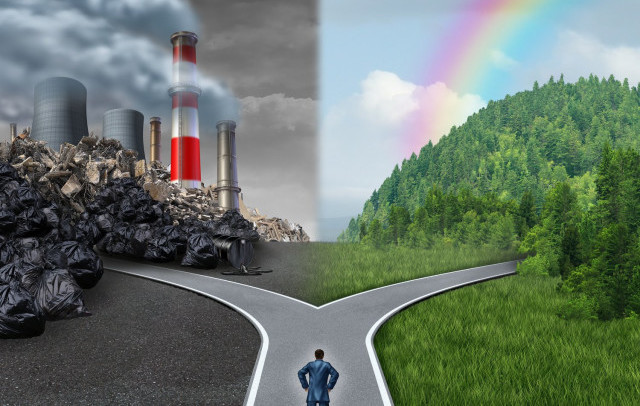‘Social Cost of Carbon’ Nonsense

American oil, coal and natural gas are abundant, affordable and efficient, so naturally the anti-energy Left hates them.
Fossil fuels keep the lights on, transportation moving, and our houses warm, all at less cost and a tiny fraction of the land required for inefficient wind and solar. The math is not on the side of wind and solar.
That’s why the Obama Administration went all-in on a construct called the “social cost of carbon” (SCC). Joe Biden brought it back “on day one.” Think of it as politically correct math.
David Wojick lays out a devastating case at CFACT.org:
The Social Cost of Carbon (SCC) has been around for some time. Obama introduced it as a policy measure, which Trump then canceled. Now Biden has brought it back and made it worse.
In a way SCC personifies the craziness of the climate scare. The whole scare is based on outlandish doomsday computer models and SCC is arguably the most absurd of all.
CFACT senior policy analyst Paul Driessen posted a rundown on the arbitrariness of “social cost” math to CFACT.org:
The price tag was set at $22/ton in 2010, raised to $36/ton in 2013, and just as arbitrarily increased to $40, before finishing the Obama era at $51/ton. President Trump disbanded the Interagency Working Group on carbon costs and had the SCC slashed to less than $10/ton. Within hours of taking office, President Biden resurrected the working group, reinstituted $51/ton as a starting point, and directed federal agencies to devise a definitive SCC by 2022…
The SCC enables agencies and their allies to attach any price they wish to every conceivable cost of using fossil fuels: hotter and colder, wetter and drier climate and weather; more frequent and intense hurricanes; reduced agricultural output; forest health and wildfires; floods, droughts and water resources; “forced migration” of people and wildlife; worsening health and disease; flooded coastal cities; even “reduced student learning and worker productivity,” due to warmer planetary temperatures.
The SCC also lets practitioners completely ignore the obvious and enormous benefits of using fossil fuels, and emitting carbon dioxide – such as enhanced productivity via affordable air conditioning in summer and heating in winter; improved forest, grassland and crop growth (and greening deserts) due to more CO2 in the air; greater home and human survival rates amid extreme weather events; and having the jobs, mobility, living standards, healthcare and longevity of modern industrialized life.
In fact, hydrocarbon and carbon dioxide benefits outweigh costs by 50:1, 400:1 or even 500:1!
That’s right, the benefits of oil, gas and coal to society outweigh the costs!
How’s that for an inconvenient truth?
P.S. Don’t forget that CO2 and carbon are not the same. Carbon is the incredibly versatile element, that as Carl Sagan pointed out years ago, “likes to combine.” You’re made of it. Carbon dioxide is what you get when a carbon molecule combines with two molecules of oxygen. CO2 is the odorless, invisible gas you just exhaled.
EDITORS NOTE: This CFACT column is republished with permission. ©All rights reserved.



